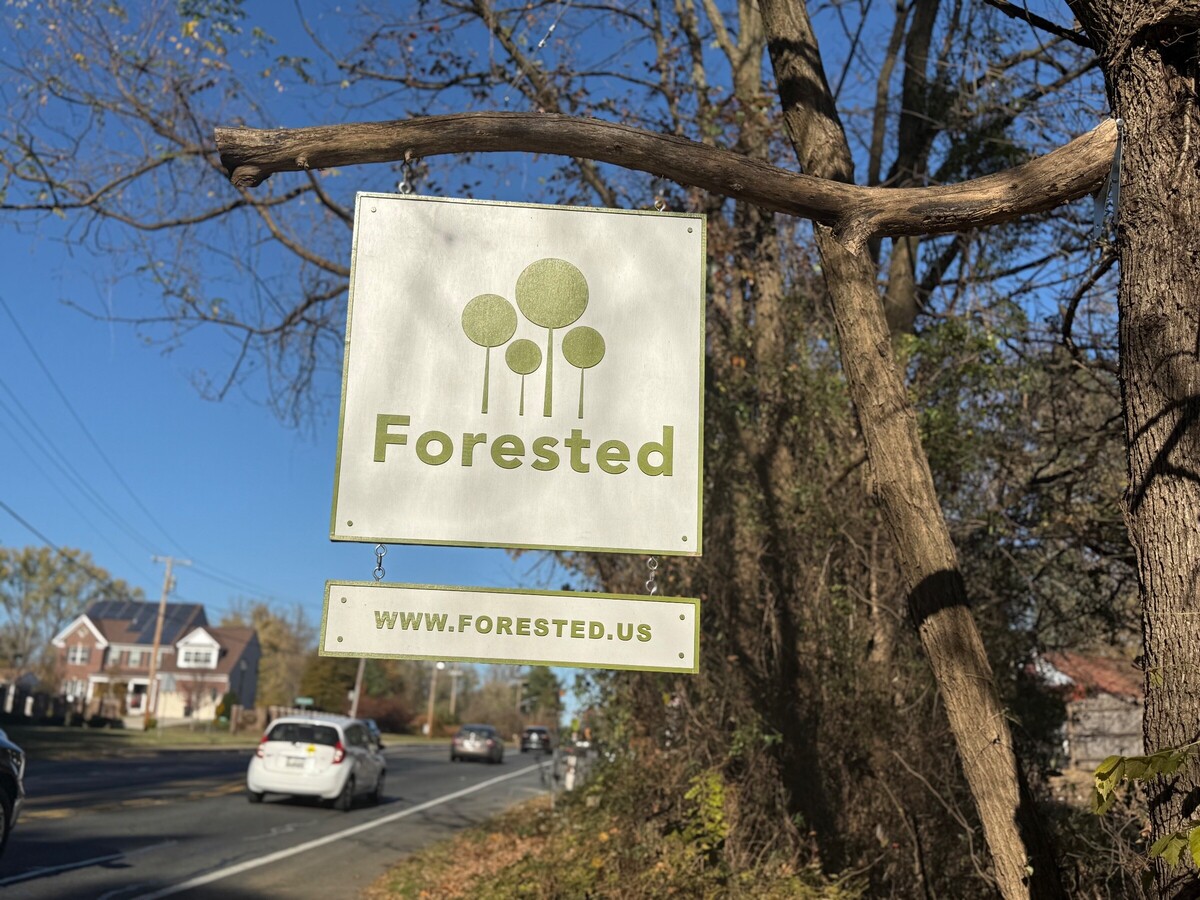Image

BOWIE, Md. – Bowie native Lincoln Smith has watched the community he grew up in transformed by new housing and shopping centers. The loss of green space inspired him to launch Forested — a company that restores woodlands and reconnects people with nature in all its edible forms.
“We do have a lot of development taking place in Bowie, which obviously people need places to live and shop. But I was sad to see some of the forest get removed, some of the green spaces,” Smith said.
After graduating from The Conway School with a master’s degree in landscape design, Smith began his career at a high-end residential landscape firm in Annapolis. He stayed in that role for about five years overseeing landscape projects with seven-figure budgets.
Smith’s ultimate vision was to design landscapes that could produce food. As Smith recalled, he became increasingly “interested in the more intimate connection between people and the forest through food. Most people don’t look at the forest and see it as a source of food, but in fact the forest can produce a lot of food.”
In 2010, Smith launched Forested LLC in Mitchellville, just outside of Bowie. This 10-acre natural area off Enterprise Road is filled with what Smith described as “health-giving foods” such as berries, nuts, mushrooms and herbs.
Experts say that interest in foraging for wild foods spiked during the pandemic, according to the news site Civil Eats.
Francis Smith, a natural resources planner II for the Maryland Forest Service, also has noticed “a lot of people … are into foraging now,” a practice that he says comes with health benefits. “So something like elderberry, that's a native plant. It's already in pharmaceuticals” such as cold syrup and vitamins, he said.
At Forested, the focus is on food more so than natural remedies. “We're trying to grow every type of edible food,” including herbal medicine, Smith said of his company. Though, he admits herbal medicine is “not my strong suit.”
Smith refers to Forested as “a demonstration and research garden where we try out all the different species.” When people come to tour his food forest, he hopes they will walk away with ideas for what to grow on their own land.
In addition to tours, Forested also provides forest feasts and design services. Forested’s first project in 2019 planted vegetable beds, fruit trees and edible shrubs around Capital City Public Charter school in a partnership with the DC Transportation Department, according to the company website.
Bodhi Vasilopoulos, a forest gardener at Forested, pointed out that no chemicals are used in the food forest. Most conventional farm systems, he said “involve lots of chemical inputs in the form of herbicides and pesticides and even fertilizers. We don't rely on any of those things.”
While food forests like Smith’s offer an innovative approach to sustainability, they can sometimes create inconveniences for neighbors. Kay-Megan Washington, program administrator for the Agricultural Conflict Resolution Service at the Maryland Department of Agriculture, receives complaints from residents statewide about living near farms and farm-like businesses.
“Typical issues have to do with the inconveniences associated with living alongside a working farm business; for example, odors, dust, noise, vehicles moving in and out, customers parking along the road, irrigation runoff,” she said in an email.
Vasilopoulos said that while complaints are more common in urban-area food forests, they don’t receive them at Smith’s site. He credited this to the vast space the food forest occupies and the proper composting protocols they follow.
“It helps that we have that field to buffer … we don’t have any odors or aromas or smells. But [in] an urban environment, that actually is significant because it does draw in more rats,” Vasilopoulos said.
He also mentioned that visitors here often provide positive feedback about the forest, which has been described in tranquil terms.
“They tell me it almost feels like you’re in an oasis,” he said. “…It’s like a sanctuary where people come to kind of feel that deep sense of connection to nature and in a very peaceful way.”
Looking ahead, Smith plans to expand his mission of providing food and forest-grown products to those in need. His talks at the U.S. Botanic Garden, the Maryland Master Gardeners' Conference, and most recently, the University of Maryland Extension Urban Agriculture Program keep him busy outside the farm, inspiring other food forest farmers.
CORRECTION: This story was updated Jan. 2, 2025, to correct the title of Forested gardener Bodhi Vasilopoulos, who is an employee not a volunteer at the company.
Savannah Grooms covers Bowie as a student reporter for the University of Maryland Local News Network.